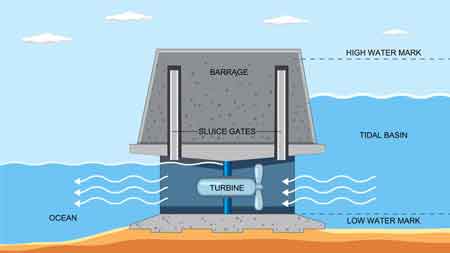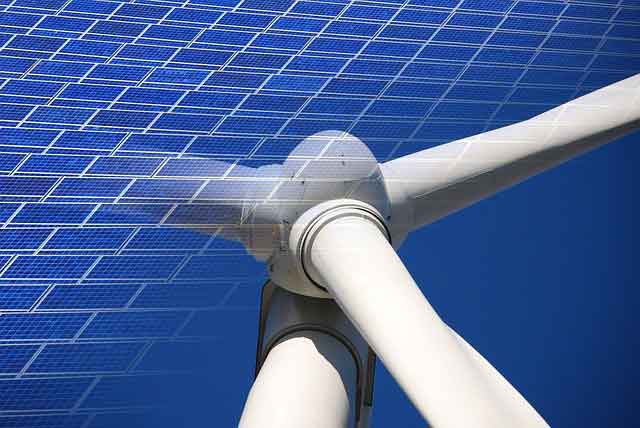Clean Renewable Energy Explained

Clean renewable energy powers electrification with solar, wind, and hydro, leveraging power electronics, energy storage, smart grids, and grid integration to cut carbon, enhance reliability, and optimize load management for sustainable electrical engineering.
What Is Clean Renewable Energy?
Clean renewable energy uses low-carbon sources and advanced grid tech to deliver sustainable electric power.
✅ Power electronics enable efficient conversion and control
✅ Energy storage stabilizes variable solar and wind output
✅ Smart grids and microgrids improve reliability and resilience
Clean Renewable Energy
Widespread use of clean renewable energy technologies (RET) is vital in securing a sustainable global energy system. Advantages of RET include:
- In contrast to conventional energy sources, the potential supply from renewables is essentially infinite and largely free of external costs.
- While clean renewable energy technologies currently still have relatively high installation costs, operating costs are low.
- In many countries, some RET are already competitive with conventional energy sources, for example biomass or biogas applications in Thailand. For most RET, costs will fall significantly below those of conventional energy sources within the next two decades.
- Increased use of renewable energy technologies is an insurance against rising import prices of fossil fuels.
- Renewable energy technology equipment can be produced domestically. For example, China has become one of the leading manufacturers of low-temperature solar thermal applications.
For readers comparing different technologies, this overview of renewable power sources outlines their characteristics and typical applications, aiding informed evaluation.
Given the mention of biomass competitiveness, this primer on biomass renewable energy explains feedstocks, conversion pathways, and typical project scales.
The number of countries where clean renewable energy technologies have seen significant market growth is steadily increasing. However,in most countries of the world, dissemination of new renewable energy technologies is still very limited. A range of barriers – financial, economic, institutional, political and technical – impede implementation. Key barriers include energy markets that are either monopolistic and skewed by subsidies, lack of energy awareness of renewable energy technologies potential and benefits, and a lack of technical and institutional capacity and financing means. So far only a few countries have implemented clean air energy policies promoting renewable energy technologies. To align stakeholders and policies, a concise primer on renewable energy fundamentals clarifies benefits, limitations, and common misconceptions.
Under the Kyoto Protocol, most public and private renewable energy project development companies can generate and market "certified emission reductions" from energy projects that involve renewable energy technologies that reduce carbon emissions in under developed areas of the world. The Kyoto Protocol provides financial incentives for shifting countries to less emissions-intensive economies. But while the Kyoto Protocol is able to lower some of the key barriers to renewable energy project development, especially in regard to the financial and economic aspects, it is not designed to cancel the obstacles. Adjusting these many conditions will attract more renewable energy technologies. These mechanisms can stimulate investment in renewable power projects across emerging markets, improving bankability and accelerating deployment.
Addressing the barriers that discriminate against renewable energy technologies in countries usually requires a mixture of well-designed and mutually supportive policies. Probably the leading issue is the economic performance of renewable energy technologies compared to the traditional energy sources that currently dominate the world's energy demand.There are two main approaches to addressing this central problem for developing renewable energy policies and technologies:
Effective policy design should reflect the maturity and grid-integration needs of different renewable energy sources so that incentives target real system constraints.
1. Bringing down the cost of renewable energy technologies and their related energy services 2. Abolishing market distortions that discriminate against the technologies Both approaches are reinforced by transparent market rules that value renewable electricity for its reliability contributions, flexibility, and environmental attributes.
Measures to address specific economic barriers include priority setting at project level by host countries, development of a suitable legal frameworks. This is not to say that Industrialised countries and the private sector cannot provide assistance such as building capacity and provding financing. But leading industrialized nations should provide international assistance to attract investment in renewable energy technologies. Clear definitions of what is renewable energy support coherent eligibility criteria and measurement frameworks in financing programs.









